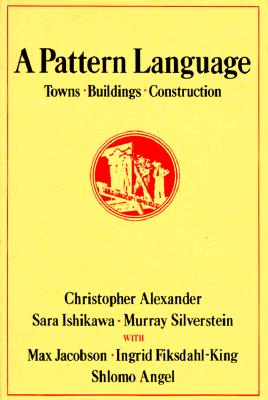 Surroundings and atmosphere play a big role in the lives of sensitive people. Small factors make big differences. Christopher Alexander and his co-authors created a book I consider to be a bible for the sensitive soul in search of peaceful, nourishing surroundings.
Surroundings and atmosphere play a big role in the lives of sensitive people. Small factors make big differences. Christopher Alexander and his co-authors created a book I consider to be a bible for the sensitive soul in search of peaceful, nourishing surroundings.
A Pattern Language, published in 1977, is volume two of a three-volume set dedicated to shifting architectural attitudes. Covering a giddy scope of topics, A Pattern Language draws on the authors’ experiences as builders, planners, and architects, and on extensive research taken to the depth of archetypal patterns.
“Each pattern describes a problem which occurs over and over again in our environment, and then describes the core of the solution to that problem, in such a way that you can use this solution a million times over, without ever doing it the same way twice.”
~ Christopher Alexander, et al, A Pattern Language
I find it impossible to resist a book which devotes entire chapters to such topics as “Child Caves,” “Filtered Light,” “Paving with Cracks Between the Stones,” “Teenager’s Cottage,” and “Courtyards which Live.” There are hand-drawn diagrams and timeless old black-and-white photographs throughout. The book is beefy, heavy, with delicate pages – all contributing to its ageless appeal.
“The Timeless Way of Building [volume one in the series] says that every society which is alive and whole, will have its own unique and distinct pattern language; and further, that every individual in such a society will have a unique language, shared in part, but which as a totality is unique to the mind of the person who has it. In this sense, in a healthy society there will be as many pattern languages as there are people – even though these languages are shared and similar.”
~ Christopher Alexander, et al, A Pattern Language
There’s a website for A Pattern Language with additional information.
Related reading: Book | Pattern Recognition, Digital Art Programs by Kevin, Why Germany is Great for HSPs
One Comment
how interesting! I need to find and read this book — thanks for the intro Grace!